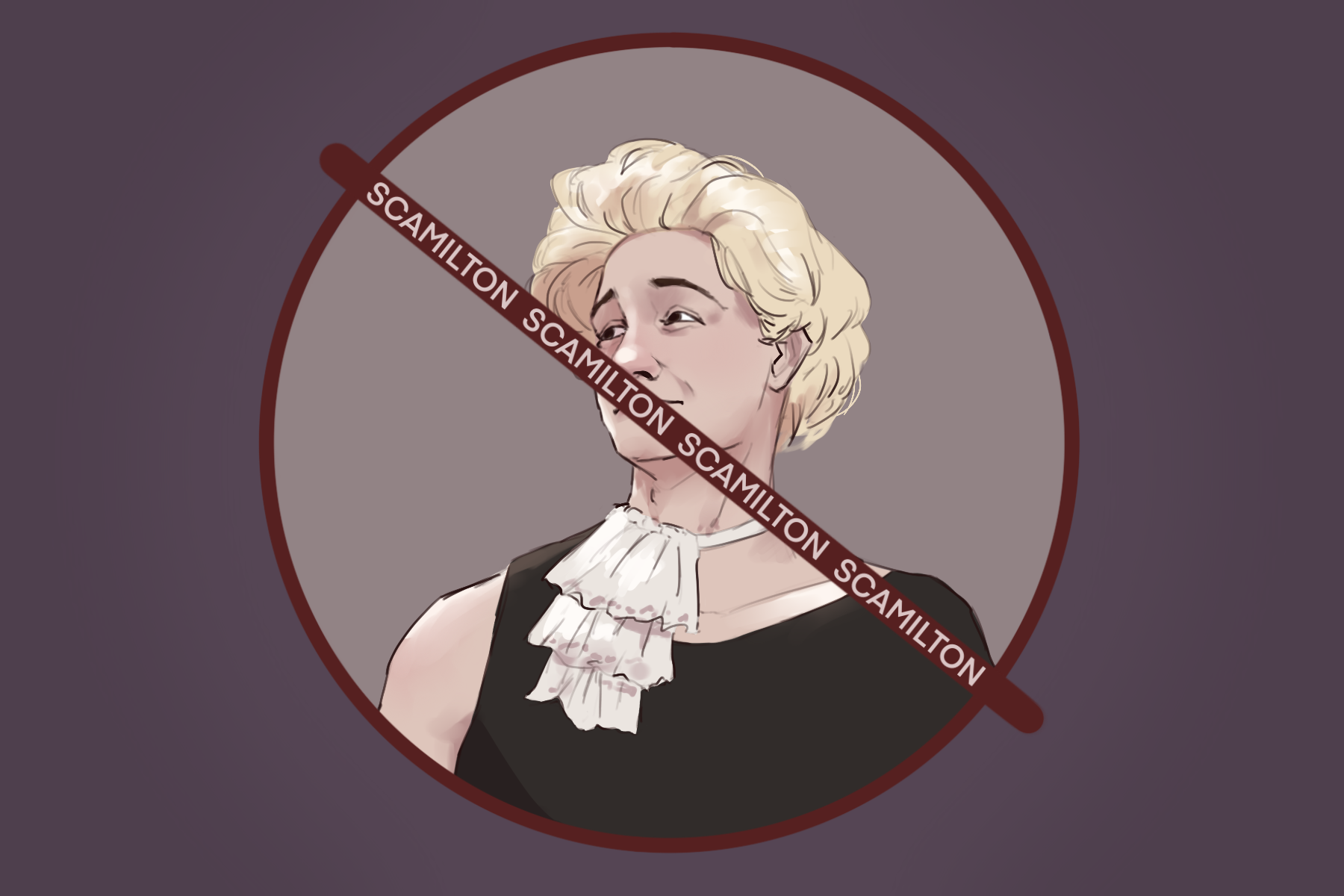If you’ve somehow missed the off-key singing, the indoctrinating message and the unending drama of The Door Christian Fellowship’s production of Lin-Manuel Miranda’s “Hamilton,” then you haven’t really missed much at all. Still, anyone who spends a fair amount of time on TikTok has been inundated with video after video of this horrendous knockoff of the beloved musical. Over the past weeks, the drama has unfolded, earning the name “#Scamilton” and even prompting a response from Miranda himself. While the church broadcasted a Christian message laced with homophobia, eventually the schadenfreude collectively felt by the internet eased the outrage around the whole production.
Several weeks ago, on Aug. 5 or Aug. 6, The Door, a Texas church, began giving away tickets to their performance of “Hamilton” on the ticket hosting site Eventbrite. Early critics quickly pointed out that something was amiss because the companies behind “Hamilton” have yet to release professional or amateur licenses of the 2015 hit musical. The news of the event reached the “Hamilton” production company on the second day of the church’s performance. Without being able to investigate the production nor file the appropriate paperwork, they allowed the second showing to happen under the condition that there would be no recordings or streaming of the performance. That did not happen. Almost immediately, snippets of the show appeared like rapid fire across TikTok and it was a disaster.
How did they think that they could get away with swiping copyrighted material and putting it out for the masses? It turns out that churches do have an exemption from copyright laws. According to the law, churches can use these materials during religious services. They absolutely were marketing their rendition of “Hamilton” as a church service. The church added lines and scenes not in the original musical that gave it a Christian slant and deleted other scenes that originally appeared in the musical. But where the copyright violation came in is in the recording and streaming of the production. While churches can use copyrighted material, they cannot publish it on the internet.
The most offensive part was the butchering of the musical. The cast of the performance appeared to have no musical talent or stage presence, and the lack of care for meeting the expectations of “Hamilton” audiences is what caused the viral spread of the clips. Fans used to flawless performances, masterclass singing and professional choreography took umbrage at the sloppy adaptation.
Not only were the lines and scenes given a Christian spin, but also, at the end of the first performance, Pastor Victor Lopez gave an impassioned sermon where he listed struggles that viewers might be having, lumping in homosexuality with alcohol and drug use. This ignited the ire of the general public since popular theater, and especially Lin-Manuel Miranda, have historically been supportive of the LGBTQ+ community. Shocked onlookers to the whole #Scamilton drama were offended that the musical was being weaponized against the very community that normally found security in the theater.
Over the weekend of the production, Lin-Manual Miranda himself was tagged across the social media landscape and responded the following Wednesday thanking fans for alerting him to the scandal and tweeted, “Now the lawyers do their work.” And that they did. After initially claiming that they had not only permission but also a license from the “Hamilton” team to perform the knockoff, The Door Christian Fellowship eventually admitted on Instagram that they did not have permission from the producers of the musical. In fact, they hadn’t even asked for it. The church, in their statement, admitted that they infringed on the rights of many, including Miranda. In the apologetic statement, they agreed to never perform #Scamilton again and to destroy any copies of the performance. In the final sentence, the church agreed to pay damages for their actions.
The final amount of money the church settled on paying has not been disclosed, but in a full-circle moment, a spokesperson for “Hamilton” announced that the production would be donating the fine paid by The Door to the South Texas Equality Project. STEP is a coalition of multiple agencies that are dedicated to uplifting and encouraging LGBTQ+ individuals and communities in South Texas, where The Door is also located. The Door did not comment on the way their funds were going to be used.
With video sharing platforms like TikTok and Instagram Reels being so popular now, it’s easy to forget that art, including theater and music, is often covered by copyright laws. The soundtrack to “Hamilton” is readily available on these platforms for amateur creators to use when making content, and there’s almost never a word from the original producers. Having soundtracks and performances spread across the internet can often be a way to elevate art, and it allows for cheap marketing of these productions. But just because art can be accessed and used in one way, trying to exploit copyrighted material can still land you in court or at least on the receiving end of a cease and desist letter. As freely as the copyright holder allows their art to be shared, they also have every right to withdraw that permission at any time. In certain cases, like The Door’s version of “Hamilton,” changing the material or using it in stark contrast to the creator’s original intended message can be financially costly as well.

















